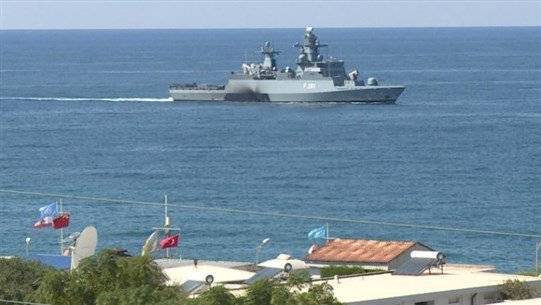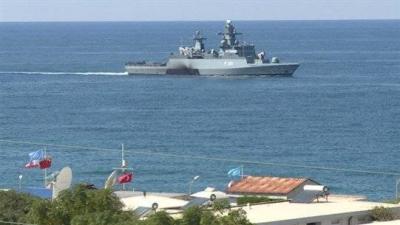If the predictions hold true and efforts succeed in bringing a "revised" government to light, which was almost certain until late last night, October will be filled with several developments that have become a reality. Among the most significant is the maritime border demarcation agreement between Lebanon and Israel, a temporary return of Syrian refugees to their homes, and the completion of necessary legislative steps including the banking secrecy law which has been approved with its amendments. French presidential advisor Pierre Dukan is reported to have said that the presidency succeeded in accomplishing two achievements: maritime demarcation and the approval of the banking secrecy law.
In October, there are also reports of maritime demarcation with Cyprus and Syria, steps of which will begin in the coming days. Lebanese President Michel Aoun received a message from Cyprus expressing a desire for Lebanon to soon advance the maritime border demarcation files with Cyprus and Syria, to which Lebanon responded positively, and serious steps will soon commence with a Cypriot delegation visiting Lebanon for this purpose. The maritime demarcation with Israel will be officially ratified on the 26th and 27th of this month. Though the signing will not be direct or resemble agreements between countries, it will be a pivotal day for Lebanon. This will mark the beginning of Lebanon's exit from its crisis, starting from the mediator Amos Hochstein’s promises of a return of electricity to Lebanon soon, indicating that the outages were politically rather than technically driven. Through the agreement on maritime border demarcation, Lebanon will be on a path to ensuring security along both sides of its borders due to the presence of Israeli interests that are hard to compromise. Most importantly, Lebanon will, albeit eventually, surely join the club of oil-producing countries.
On the 26th, American mediator Amos Hochstein will arrive in Beirut carrying the final draft of the agreement. He will head to Baabda to brief the President on all the details related to the signing day scheduled for the second day of his visit, i.e., the 27th. Reports indicate that Hochstein may visit Israel for the same purpose, and he will inform Lebanon about the nature of the Israeli delegation that will participate in Naqoura, ensuring that Lebanon's representation mirrors that of Israel's.
On the second day, Hochstein will go to Naqoura to join the Lebanese and Israeli delegations under the United Nations flag, with the presence of the UNIFIL commander, where the Lebanese and Israeli delegations will sign the agreement text separately. The Lebanese delegation will sit in one room while the Israeli delegation will be in a different separate room; they will not meet or exchange dialogues, and each party will sign the agreement text individually and hand it over to the American mediator. The UN has begun preparations to host the participating delegations.
Lebanon's signature will not appear alongside the Israeli signature on one document; each will sign on a separate paper, and there is no need to present or discuss the agreement in the Cabinet or Parliament since there is no violation of Line 23 as adopted by the UN, which Lebanon signed back in 2011. As of now, while awaiting information on the nature of the Israeli representation, Lebanon has not finalized the names of its delegation, although several names are in circulation. It is possible that a technical military delegation may be formed consisting of top administrative personnel, but the issue arises if the Israeli delegation is led by the Minister of Electricity—will Lebanon agree to elevate its representation to match this level? The decision rests with President Michel Aoun, who will consult with the Presidents of the Parliament and the government to decide on the names of the delegation.
As for the preliminary signature that precedes the signing by the delegation in Naqoura, it is yet to be determined. Will the President sign the message as it is addressed to the UN based on his role as the defender of borders as stipulated in the constitution, or will he suffice with the signatures of the delegation members in Naqoura? Regarding the agreement signed with Total Energy, there is no need for re-signing as the existing contract is still in effect and won’t require re-presentation to the Cabinet. Sources involved in the file assert that there is no new information but rather a modification of the contract for blocks 4 and 9 to adjust the shares following the exit of the Russian company Novatek, which requires exceptional approval—these are necessary legal and administrative procedures to facilitate guaranteed exploration in line with the demarcation agreement, and the company will be obliged under the signed contract to continue exploration until gas is found and extracted.
Thus, these are the "October Achievements." If realized, they will mark the beginning of Lebanon's exit from the tunnel, even if it is a slow exit.




